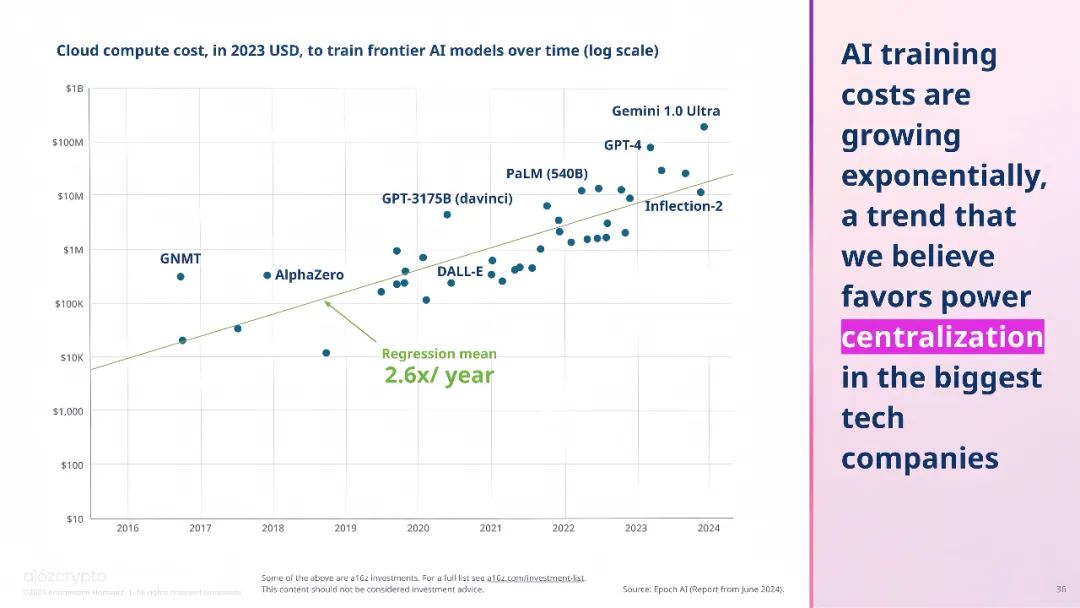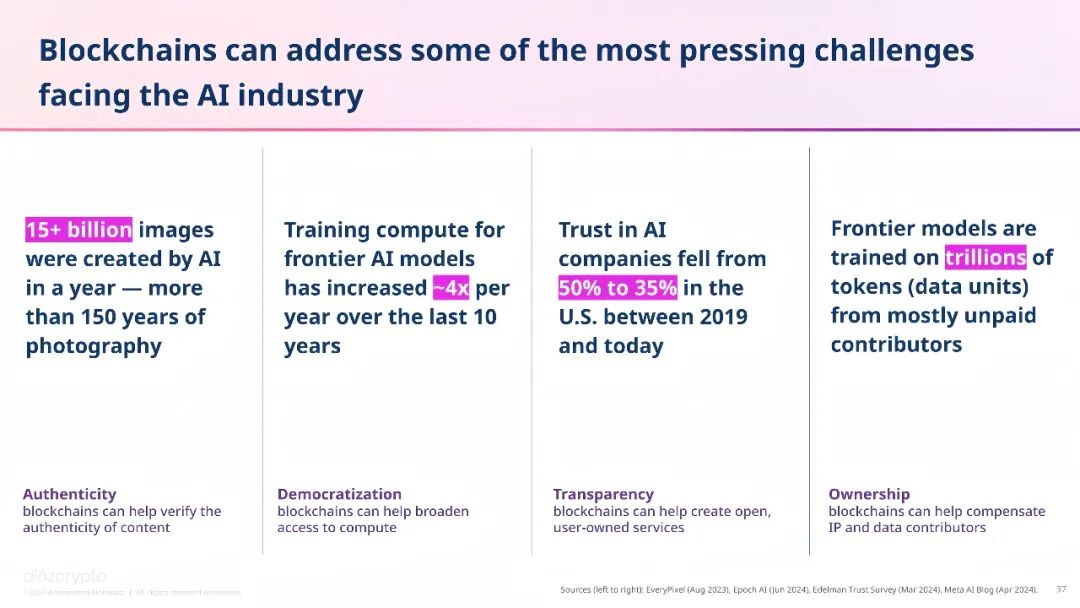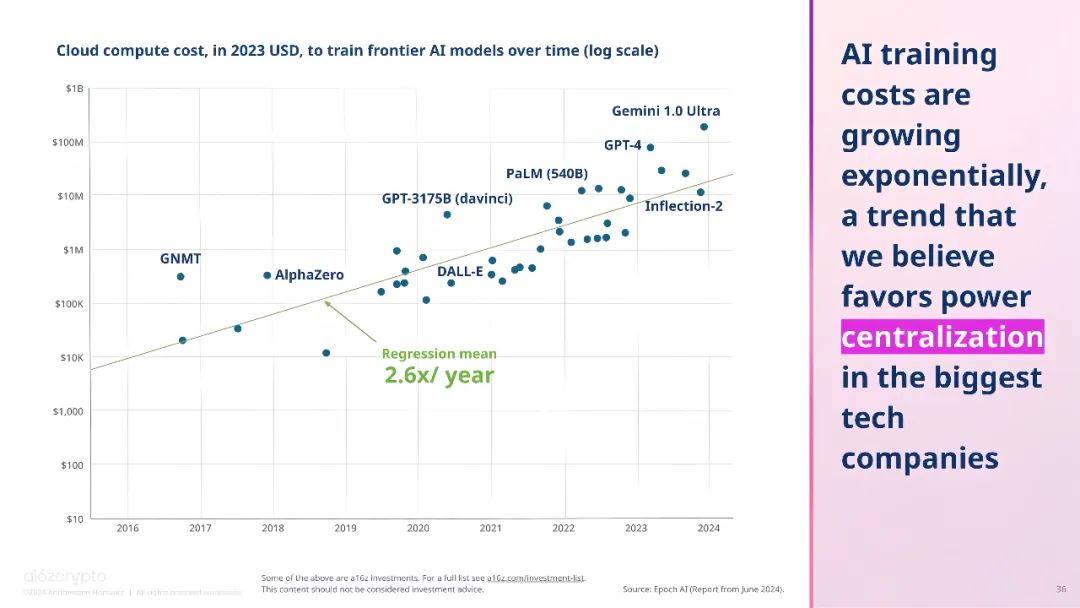Source: cryptoslate
Compiled by: Blockchain Knight
According to the "State of Crypto Assets 2024" report released by a16z, Crypto assets play an important role in addressing the challenges posed by artificial intelligence (AI).
One of the problems facing AI is that development is becoming increasingly expensive and centralized, and the report provides a decentralized solution based on blockchain technology.

The report emphasizes that currently 34% of Crypto asset projects have adopted AI, a significant increase from 27% in 2023, with many projects focusing on making AI more accessible through decentralized networks.
At the same time, the soaring costs of developing and training advanced AI models have led to the concentration of resources in the hands of a few large tech companies. This centralization limits innovation and the computing power needed to achieve AI breakthroughs.
However, Crypto asset projects are beginning to change this situation by decentralizing access to AI resources.

The report points out that projects like Gensyn are working to democratize AI computing power.
Gensyn's decentralized network allows smaller developers and startups to access the computing resources needed to train AI models, eliminating the traditional financial barriers associated with AI development.
By decentralizing the AI infrastructure, these projects provide more participants with the opportunity to innovate in the field of AI, rather than letting AI be dominated by a few leaders.
In addition to decentralizing resources, blockchain technology can also improve the transparency of AI processes, particularly in terms of intellectual property (IP) and content verification.
Projects like Near and Story use blockchain to track and verify the source of digital content, ensuring that creators receive proper credit and compensation.
This verification system addresses a growing problem in the AI field, where training data sets often include materials used without authorization and compensation from creators.
The report also believes that the transparency of blockchain technology helps restore public confidence in the AI industry.
Over the past five years, public trust in AI companies in the United States has dropped significantly, from 50% to 35% in 2024.
Crypto asset developers are increasingly integrating AI into their projects, with blockchain infrastructure still being the category with the most AI adoption.

According to a16z's Builder Energy dashboard, builders are using AI to optimize smart contracts, enhance decentralized autonomous organizations (DAOs), and improve algorithmic trading systems.
The report points out that as the blockchain infrastructure continues to improve, the potential of AI-driven applications in the Crypto ecosystem is also expanding.
Significant advancements in blockchain technology have greatly reduced transaction costs, making it easier to build scalable AI-driven applications.
The reduction in costs provides more opportunities to experiment and innovate by combining AI with decentralized technologies, leading to the development of new applications in areas such as identity verification, prediction markets, and content authentication.
These use cases all demonstrate the potential of AI to unlock new functionalities on blockchain platforms.







